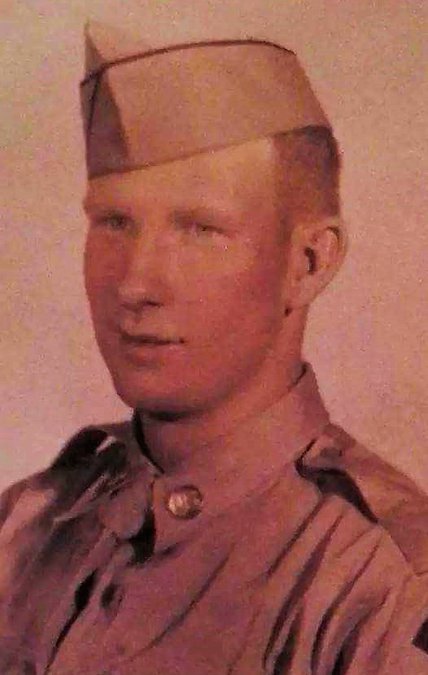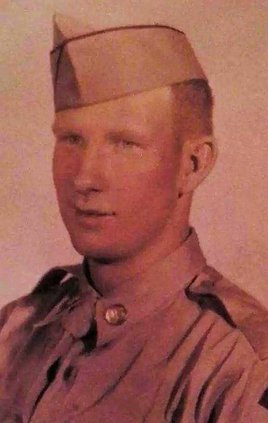Each week we’ll take a step back into the history of Great Bend through the eyes of reporters past. We’ll reacquaint you with what went into creating the Great Bend of today, and do our best to update you on what “the rest of the story” turned out to be.
This week in 1950, action heated up in Korea as US forces entered combat in the Battle of Osan on July 5. By July 8, General Douglas MacArthur was named the commander-in-chief of the United Nations forces in Korea. Many young Great Bend men would serve in that war.
In Great Bend, the Tribune reported the Humane Society was set to build a dog pound.
“The recently formed Great Bend Humane Society has offered to build a new dog pound for the city , and the offer has been accepted
“An eight-point petition was presented to the city council Monday ninth continuing the offer and a number of other suggestions for the handling of Stray animals, chiefly dogs.
“The offer was conditioned on the provision by the city of the land needed, and the council voted to furnish the land near the Dubois sand pit.”
The Dubois Sand Pit was established in the 1930s, and was located near the south end of Jefferson Street in Great Bend. In 1963, it was acquired by the Stone family and became Stone Sand.
We found two obituaries associated with the pit. The first, for Gene Paul Dubois, who was born in Great Bend in 1931, and graduated from Great Bend High School, probably right around the time the Humane Society made its offer. Soon after, he served in the Korean War from 1952-1954, and was awarded the National Defense Service Medal, United Nations Service Medal, Bronze Service Star and Good Conduct Medal. In 1965, he married Betty, and later co-owned a sand business with his brother in Santanta. He and Betty had many children, grandchildren, and great grandchildren, and died March 1, 2019 at age 87.


In 1955, another young Great Bend man, Melvin R. Wells, who had also served in Korea, lost his life at the Dubois Sandpit when a night of merry-making turned tragic.
Wells and friends had been out drinking when they decided to take a drive out to the sandpit. Once there, Wells and a friend stripped down, dove in and raced each other to the end of the pit and back. Wells never made it back to shore, and hours later was pulled from the water by emergency responders. He was 23 years old.
Eventually, the Humane Society relocated to its present location on Hwy 281. Today, it serves Great Bend and the unincorporated parts of Barton County.
No room at the school
In 1950, Great Bend contractors were working overtime to alleviate a housing shortage, and over 100 building permits were issued that year. Housing issues weren’t the only concern facing Great Bend, either. The Great Bend School Board announced their decision then to bar new enrollments of children from rural districts in Great Bend grade schools.
“The 1950 school census shows that 250 children in Great Bend will have reached the age of five and are expected to start kindergarten this September. In 1951 , 355 more children will be ready, and in 1953 an all-time high of 482 will be enrolling in kindergarten,” the report stated.
“Plans to build a new grade school to make way for the impending influx of new students are still in the thin-air stage. To prevent the average number of pupils per teacher from rising, rearrangements will have to be made this year in the second grade at Riley and the first grade at Washington.”
A few years later, Eisenhower Elementary School was built. For the past couple of decades, USD 428 Superintendents have reported few increases or decreases in the student population.
Widening 10th
The summer of 1950 was also when the State Highway Department began widening 10th Street. Photos in the Tribune, while blurry, featured numerous road blocks from Kansas to Fray streets which kept customers from accessing merchants.
“It may be progress to some people, but to merchants on east Tenth street the State Highway department’s street-widening project is just plain murder.
“Business is terrible, thank you. With the street blocked off from Main to Frey, access to the east end of the street is difficult. In the picture at the left the 10th and Frey intersection is shown, blockaded like a Korean road out front.
“Merchants like James Yeager say business at the Mammel Food Store he manages is off a good 20 percent. Many employees have gone on enforced week-long vacations without pay.”
Since 1950, a lot has changed along Great Bend’s 10th Street, and most of the businesses that once lined it are no more. Fortunately, others have taken their places, and Great Bend continues to prosper, albeit at an easier pace.
Just for fun
Wheat thief
Some people will do just about anything to get a hold of some firecrackers. We can’t say who this young man was, as his name was not disclosed.
“A 15-year-old boy today was put on probation until his 16th birthday after he admitted stealing 160 pounds of Commodity Credit Corporation wheat from a Santa Fe boxcar and selling it for $4.67, most of which he used for firecrackers.
“The boy, who had been involved in wheat thefts on previous occasions, chipped a hole in the side of a boxcar June 30. The car was on a siding west of Main Street. Two and a half sacks of wheat was sapped from the car, then the hole was plugged. The boy stole 11 empty sacks and stashed them in an empty stock car.
The next Saturday, he chipped a hole in another car, but when he found that someone had taken his empty sacks, he plugged the hole with a corncob.
“He then got an acquaintance, on July 3, to take the two and a half sacks of stolen grain to the Farmers Grain and Supply elevator, Ellinwood. He told the acquaintance that the wheat was “sweepings,” and it was sold as that. The boy gave the transporter $2.35 for disposing of the grain, he said.”
The juvenile judge told the boy his next offense would result in a trip to the reformatory. He ordered the money he’d received for the wheat to be refunded and the damage to the cars repaid when it is estimated. And, the boy was ordered to report weekly to the judge.





